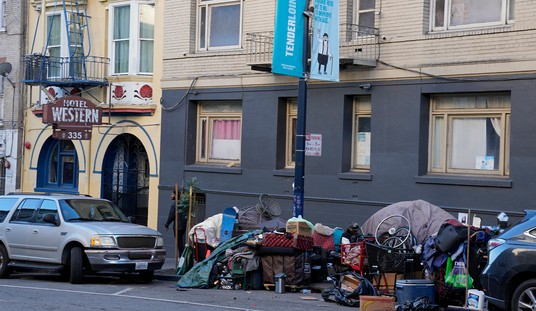The voting started this morning before sunrise, despite the best efforts of Spanish police to close polling places and confiscate “voting materials.” Some 337 people were injured after rubber bullets were used by police to ostensibly control the unruly crowds.
It’s a far cry from Friday when this happened:
Barcelona mood ahead of Sunday's #indyref pic.twitter.com/iHpHZ4tBJK
— 15MBcn_int (@15MBcn_int) September 29, 2017
Catalonia, pushing back on the economic burden of carrying a higher tax rate due to their thriving economy and the fact that they are culturally fairly distinct from the rest of Spain, has tried again to vote for independence. And, while any overwhelming vote to secede would be in violation of the Spanish constitution — and that those who favor independence may, ironically, actually be Socialists — it’s worth noting the tactics the Spanish government are using to stop the vote are a cautionary tale for how easy it is to dismiss the freedom to assemble and speak when people clash with their government.
When the police comes to remove the ballots but your friend is an engineer 🤔🛠️💡 #CatalanReferendum pic.twitter.com/Ktd67MNRXF
— Enric Durany (@EnricDurany) October 1, 2017
According to the BBC, Spanish police weren’t on hand to keep fights from breaking out. They were on hand to stop the vote itself:
Catalan leader Carles Puigdemont condemned the action of the national police and Guardia Civil, who were sent into Catalonia in large numbers to prevent the vote from taking place.
“The unjustified use of violence… by the Spanish state will not stop the will of the Catalan people,” he told reporters.
But Spanish Interior Minister Juan Ignacio Zoido blamed Mr Puigdemont for what he termed the day’s senseless events.
And the Guardia Civil tweeted (in Spanish) that it was “resisting harassment and provocation” while carrying out its duties “in defence of the law”.
The strongarm tactics of the Spanish police even led some Catalans, who had been in favor of maintaining the union with Spain, to change their minds.
Elisa Arouca was waiting to vote outside the Estel school in central Barcelona when National Police agents yanked her and other prospective voters out of the way, used a mace to smash the door open, and confiscated the ballot boxes.
The violence had an impact on her. She had been planning to vote in favor to keeping Catalonia part of Spain, but decided instead to join the push for independence. She moved to another polling station to try and cast her vote.
Arouca said that “I was always against independence but what the Spanish state is doing is making me change my mind. The National Police and Civil Guard are treating us like criminals. I was most likely going to vote “No” until the National Police sent me flying. Now I will try to vote Yes.”
She only made up her mind to vote Wednesday after the Spanish officials made a series of arrests designed to shut down the disputed voting process.
The U.S. via President Trump has publicly supported the Spanish state, and for good reason writes Forbes: “There are parts of Catalonia where there is extreme pressure to only speak Catalan as opposed to the other official languages in Spain. There is a form of oppressive political correctness and revisionist history in the region.”
Spain is a reliable friend of the US. We have many shared interests and values including the fight against terrorism and the end to the Chavez-Maduro regime in Venezuela. US independence owes a great deal to Spanish assistance. There is also the fact that more than 55 million Americans have some form of Latino or Hispanic descent.
Unfortunately, the Catalans have been winning the PR war. The Spanish government has not found good international communicators who can present the Spanish side of the story in a compelling way. The Catalans also benefit from the fact that Spain is seen as a great country and that this Catalan independence movement is a quaint, harmless, sideshow.
That Catalans favoring independence are causing an uproar is indisputably true; that they are Socialist separatists who are simply trying to sow discord might be true. Also true: any referendum for independence is likely to be legally unrecognized making any victory pyrrhic at best. But none of these things mitigates the squashing of Catalonia’s right to hold a vote. Even Google — ever the protector of free speech — complied with an order by a Spanish court to delete an app the court said “Catalan separatists were using to spread information about a disputed independence vote this Sunday.”
The ballots reportedly were a single question with a two choice answer option: “Do you want Catalonia to become an independent state in the form of a republic?: Yes or No.”
Perhaps Spain is trying to avoid further clashes if the vote favors independence. Arguably, shutting the election down precludes more serious violence after the fact. But their tactics, to Western eyes with a fondness for free speech and assembly, don’t look very democratic.













Join the conversation as a VIP Member